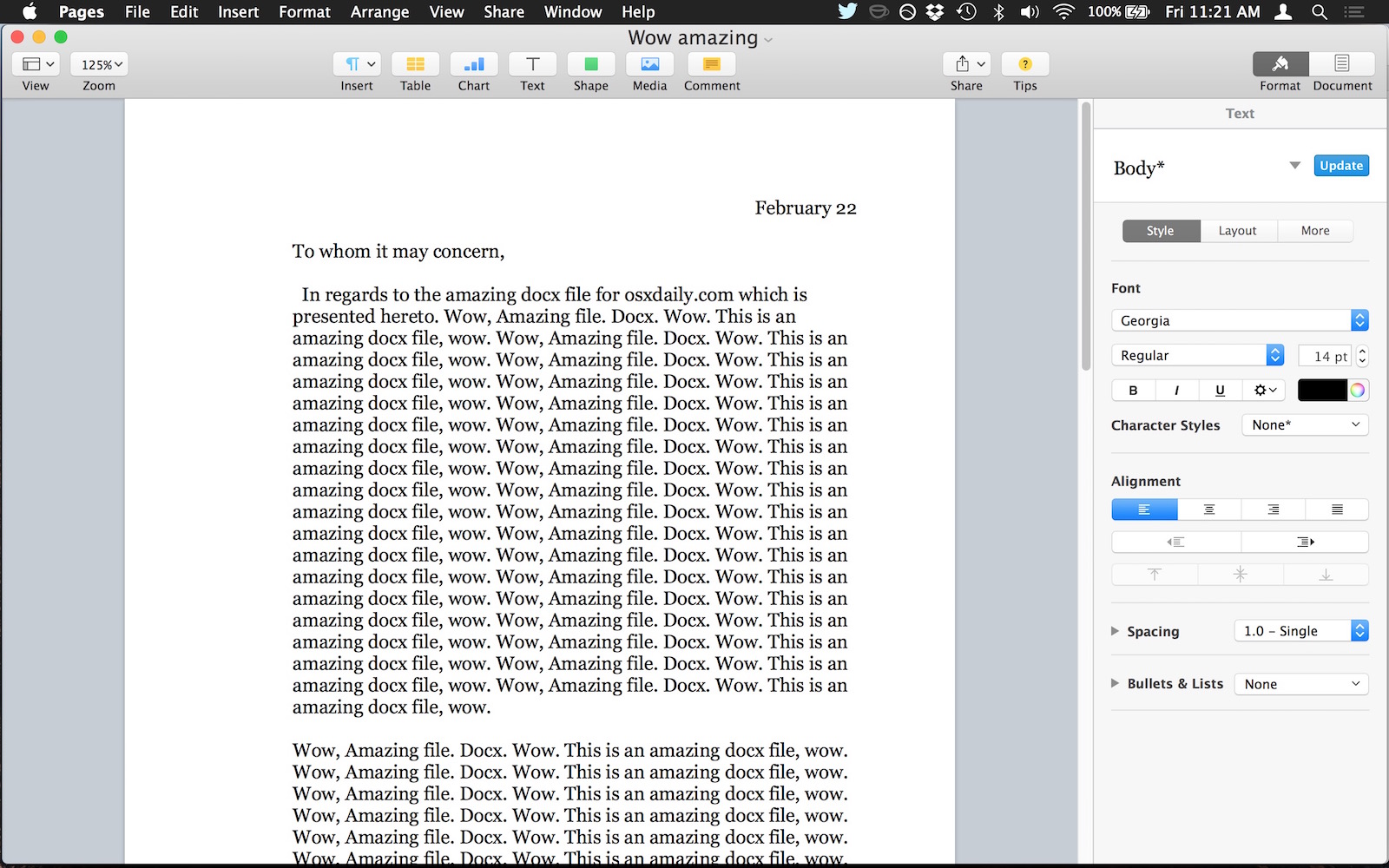What Is Open Xml File Format Converter For Mac
Posted : admin On 23.01.2019Excel 2013 Word 2013 PowerPoint 2013 Excel 2010 Word 2010 PowerPoint 2010 Excel 2007 Word 2007 PowerPoint 2007 Office 2007 Office 2010 Starting with the 2007 Microsoft Office system, Microsoft Office uses the XML-based file formats, such as.docx,.xlsx, and.pptx. These formats and file name extensions apply to Microsoft Word, Microsoft Excel, and Microsoft PowerPoint.
This article discusses key benefits of the format, describes the file name extensions and discusses how you can share Office files with people who are using earlier versions of Office. In this article What are the benefits of Open XML Formats? The Open XML Formats include many benefits — not only for developers and the solutions that they build, but also for individual people and organizations of all sizes: • Compact files Files are automatically compressed and can be up to 75 percent smaller in some cases.
The program that is creating the XML file is more than likely able to save the same file to a different format. For example, a simple text editor, which can open a text document like XML, can usually save the file to another text-based format like TXT.
The Open XML Format uses zip compression technology to store documents, offering potential cost savings as it reduces the disk space required to store files and decreases the bandwidth needed to send files via e-mail, over networks, and across the Internet. When you open a file, it is automatically unzipped. When you save a file, it is automatically zipped again. You do not have to install any special zip utilities to open and close files in Office. • Improved damaged-file recovery Files are structured in a modular fashion that keeps different data components in the file separate from each other. This allows files to be opened even if a component within the file (for example, a chart or table) is damaged or corrupted.
Open Xml File Format Converter For Mac 1.2.1

Video File Converter For Mac
• Better privacy and more control over personal information Documents can be shared confidentially, because personally identifiable information and business-sensitive information, such as author names, comments, tracked changes, and file paths can be easily identified and removed by using Document Inspector. • Better integration and interoperability of business data Using Open XML Formats as the data interoperability framework for the Office set of products means that documents, worksheets, presentations, and forms can be saved in an XML file format that is freely available for anyone to use and to license, royalty free. Office also supports customer-defined XML Schemas that enhance the existing Office document types. This means that customers can easily unlock information in existing systems and act upon it in familiar Office programs. Information that is created within Office can be easily used by other business applications. All you need to open and edit an Office file is a ZIP utility and an XML editor.
The game reached number 2 in the UK PS4 sales chart, behind, but topped the XO chart. Reception [ ] Reception Aggregate score Aggregator Score PS4: 82/100 XONE: 85/100 PC: 86/100 iOS: 66/100 Review scores Publication Score 80 80 80 88 80 The game received a positive reception scoring 86 out of 100 on the site, with many publications calling it the best Formula One game Codemasters has created. Online lobbies are expanded to allow for twenty-two car grids. The mobile version, however, has a score of only 66/100 on Metacritic due to issues. 
• Easier detection of documents that contain macros Files that are saved by using the default 'x' suffix (such as.docx,.xlsx, and.pptx) cannot contain Visual Basic for Applications (VBA) macros and XLM macros. Only files whose file name extension ends with an 'm' (such as.docm,.xlsm, and.pptm) can contain macros. Before you decide to save the file in a binary format, read What are the XML file name extensions? By default, documents, worksheets, and presentations that you create in Office are saved in XML format with file name extensions that add an 'x' or an 'm' to the file name extensions that you are already familiar with. The 'x' signifies an XML file that has no macros, and the 'm' signifies an XML file that does contain macros.